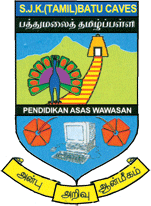
JOBA
Australia

What is 'Bionity'?
The word 'Bionity' is a newly coined word, incorporating bio-diversity and humanity. The concept of 'Bionity' is to promote peace and prosperity for people and planet.


Biodiversity
Biodiversity, short for biological diversity, refers to the variety of life on Earth at all levels of organization, including the diversity of species, ecosystems, and genetic diversity within species. It encompasses the totality of genes, species, and ecosystems in a given area. Biodiversity is crucial for the health and resilience of ecosystems, providing a range of ecosystem services that support human well-being. Biodiversity is under threat due to various human activities, including habitat destruction, pollution, climate change, overexploitation of natural resources, and the introduction of invasive species. The loss of biodiversity can have significant consequences, affecting ecosystem functioning, food security, and human well-being. Conservation efforts, sustainable practices, and awareness about the importance of biodiversity are essential to mitigate these threats and preserve the richness of life on Earth.
Humanity
Humanity refers to the collective attributes, behaviors, and characteristics that define the human species. It encompasses a wide range of qualities, including intelligence, self-awareness, creativity, and the capacity for complex social interactions. One of the distinctive features of humanity is the ability to experience and express emotions, including empathy and compassion. While modern culture has brought about numerous advancements and improvements, there are also challenges and concerns that can negatively impact the well-being of humanity. Some of the key issues contributing to the challenging plight of humanity in modern culture include: Social Inequality, Environmental Degradation, Mental Health Challenges, Technological Dependence, Global Health Crisis, Cultural Homogenization, Political Instability and Conflict, Consumerism and Materialism. It's important to note that while these challenges exist, there are also ongoing efforts to address them. Initiatives promoting sustainability, social justice, mental health awareness, and cultural preservation are crucial for mitigating the negative impacts of modern culture and working towards a more equitable and sustainable future. Cultivating empathy through compassion enhances interpersonal relationships and contributes to a more compassionate society. In essence, humanity's well-being and progress are intricately tied to the practice of compassion. Recognizing and responding to the needs of others with empathy and kindness not only benefits individuals on a personal level but also contributes to building a more compassionate and harmonious global community.


Promoting Peace & Prosperity for People and Planet
Promoting peace and prosperity for people and the planet involves fostering conditions that enhance the well-being of both humanity and the environment. This approach recognizes the interconnectedness of social, economic, and environmental factors, emphasizing sustainable and inclusive development.
Here are key aspects of promoting peace and prosperity for people and the planet:
Education and Knowledge Sharing
Knowledge is a powerful tool for promoting peace and prosperity. Investing in education, information sharing, and technology access empowers individuals and communities, fostering innovation, critical thinking, and positive societal development.
Community Empowerment
Empowering local communities to actively participate in decision-making processes and sustainable development initiatives is crucial. Supporting grassroots efforts enhances resilience and contributes to the overall well-being of communities.
Environmental Sustainability
To achieve long-term prosperity, it is crucial to prioritize environmental sustainability. This involves responsible resource management, conservation of biodiversity, and mitigating climate change impacts. Sustainable practices aim to balance human needs with ecological health, ensuring a thriving planet for future generations.
Social Justice and Inclusion
Building a peaceful and prosperous world requires addressing social inequalities and promoting inclusivity. Ensuring equal access to education, healthcare, and opportunities empowers individuals and contributes to a more just and harmonious society.
Economic Development with Equity
Economic prosperity should go hand in hand with equity and social justice. Sustainable economic development aims to improve the quality of life for all, addressing poverty, providing decent work, and promoting fair trade practices.
Cultural Preservation
Respecting and preserving cultural diversity contribute to a rich tapestry of human experiences. Cultural preservation helps maintain traditional knowledge, languages, and practices, fostering a sense of identity and connection within communities.
Responsible Governance
Effective and transparent governance is essential for promoting peace and prosperity. Governments and institutions that prioritize the common good, uphold the rule of law, and ensure accountability contribute to the creation of stable and flourishing societies.
Global Cooperation
Many of the challenges facing humanity, such as climate change, pandemics, and economic disparities, are global in nature. Encouraging international collaboration and cooperation is crucial for finding collective solutions that transcend borders and benefit people worldwide.
Our Current Status
31
Bionity
Educational Institutions
5
Bionity
Civil Society Organisations
4674
Participating
Students, Parents, Teachers
135
Webinars &
Meetings
67
International
Experts
412
Projects
Executed

Our Services
JOBA is committed to promote Bionity Institutions.

Become a proud Bionity Educational Institution Leader
You possess the ability to transform your school, college, or university into a future-focused and socially responsible institution.

Be a satisfied NGO/CSO head promoting Bionity
Elevate your institution's standing by leveraging JOBA's international expertise, enriching your human sources.

Be happy as a chief of a responsible corporate
As the leader of a corporation, catalyze the transformation of your organization into one that champions a sustainable way of life.



















